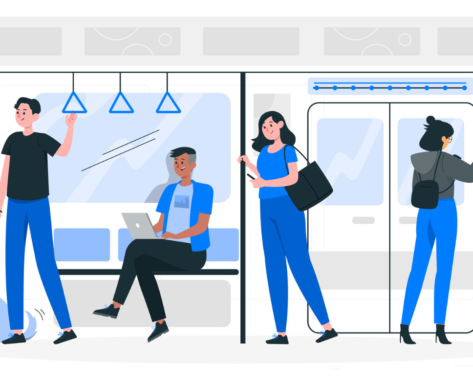LESSON OVERVIEW
The main objectives of this lesson are to:
- learn and practise transport vocabulary;
- watch and discuss a video about the initiative called a “bike bus”.
In this lesson, students have the chance to deeply explore and practise transport vocabulary. They discuss the advantages and disadvantages of different means of transport, watch a video and share their perspectives on the topic.
WARM-UP AND VOCABULARY
The lesson starts with a warm-up in which students identify different kinds of transport in a word cloud and answer questions about the means of transportation. After that, they practise transport vocabulary by completing gaps with words (e.g. go on foot, take a bus, by train, etc.) to create and answer questions. Then, students work more with vocabulary. They investigate different uses of phrases related to transport (e.g. get on, get off, get into, etc.). Students also answer a discussion question about the activities from the task.
VIDEO AND DISCUSSION
In this part of the lesson, students try to guess the meaning of a “bike bus” before they watch a video. After that, they watch the video for the first time to check their answers. Then, they watch it a second time to practise their listening skills. In this part, they get more detailed information by choosing the correct words in statements. Afterwards, students share their perspectives on the “bike bus” and its benefits by completing statements with their own ideas. Students also learn and practise more transport vocabulary. First, they match sentence halves to create statements with a focus on words and phrases about transport (e.g. better for the environment, convenient, cycle lanes, etc.). After that, students complete the gaps with the words and phrases previously studied to create questions. Then, they answer the questions about the convenience and advantages of different means of transport. Finally, the lesson is wrapped up with a task in which students explain why some transports are better or worse than others using phrases from the boxes (e.g. bus pass, convenient, get off, get on, etc.) in their arguments.
HOMEWORK/REVISION
This lesson plan also includes an additional task that you can use as homework or revision. In the task, students practise transport vocabulary by completing the words. The task is available in the teacher’s version of the worksheet. You can print it and hand it out to your students. It’s also included in the e-lesson plan.
WORKSHEETS













Great lesson!!!
Thanks, happy to hear that 🙂